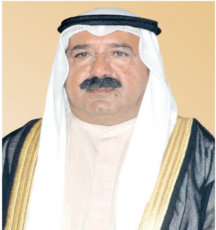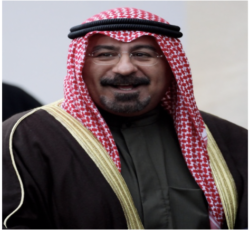**Written and disseminated to select contacts on March 27, 2020**
WHAT YOU SHOULD KNOW
Uncertainty over the line of succession is becoming an increasingly important topic for Kuwait, where political deadlock has largely prevented the ultra-wealthy and low-populated country from enacting reforms to diversify its economy and run its public finances in a more sustainable and transparent way.
In the event of the passing of its ruler, Emir Sheikh Sabah (91 this year), Crown Prince (CP) Sheikh Nawaf – also a member of the Al Jaber branch of the ruling family – will take power. However, at 82 years old, his reign may be short-lived. He is also seen as politically weak and is almost certain to prolong current economic and political inertia.
This makes the choice for CP and next-in-line for the throne highly significant: there are several candidates but most hail from the Al Jaber branch. Potential for conflict with the Al Salem branch over the next successor therefore is high: the Al Jaber side has been in power since the previous succession in 2006, when Al Salem was controversially ousted, disrupting the traditional rotation of power within the ruling family.
Depending on who is chosen, there is potential for Kuwait to significantly alter its economic and foreign policy priorities and trajectory. Some of the candidates for CP offer major transformation opportunities whereas others offer more of the same. With this in mind, Castlereagh Associates assesses the likelihood and implications of succession for the most viable candidates.
NEXT IN LINE: EMIR OF KUWAIT
Sheikh Nawaf Al Ahmad Al Jaber Al Sabah (82 years old)
Position: CP since 2006; deputy commander of the Kuwaiti military; and emir’s half-brother.
Likelihood of Succeeding [100%]: As the CP, Sheikh Nawaf is certain to rule after Sheikh Sabah because succession procedure in Kuwait is strictly adhered to. The only circumstance precluding this would be if Sheikh Nawaf were deemed unfit for office by the time Sheikh Sabah passes away due to age.
Background: Sheikh Nawaf has had a long career in public service. Past positions include defence minister (1988-91), acting labour and social affairs minister (1991-92) and deputy chief of the National Guard (1994-2003).
Significance: Sheikh Nawaf is unlikely to bring about needed reforms in Kuwait as emir. His rule may be short-lived but would certainly prolong current economic and political inertia, perhaps for a decade. Despite a long life in public service, Sheikh Nawaf is not an influential political figure. However, he may be key in appointing the next CP, whose future ascendance to the throne will determine Kuwait’s political, economic and international future. It is therefore likely his reign will be marked by conflict behind the scenes between the various contenders to the throne.
NEXT IN LINE: CROWN PRINCE

Sheikh Nasser Sabah Al Ahmad Al Sabah (71 years old)
Position: Chairman of the General Secretariat of the Supreme Council for Planning and Development; chairman of the Civil Service Commission; and the emir’s son.
Likelihood of Succeeding as CP [50%]: Sheikh Nasser is by far Kuwait’s best chance to drive reform and regain political momentum. However, due to his tendency to point the finger at corruption among royals, it is possible that members of the Al Sabah family will try to halt his becoming CP. There are also rumours he has cancer.
Background: Sheikh Nasser Sabah was removed from the Cabinet as defence minister and first deputy prime minister (PM) in November 2019 following a very public disagreement with the former interior minister over the latter’s alleged misappropriation of military funds. Previously, Sheikh Nasser Sabah served as head of the Amiri Diwan between 2006 and 2017.
Significance: As an ambitious and leading figure in national economic diversification plans, particularly the Silk City megaproject, Sheikh Nasser Sabah could be instrumental in spurring much-needed reforms to Kuwait if he gains power, as well as change the trajectory of Kuwaiti economic and foreign relations. Notably, Sheikh Nasser Sabah enjoys good relations with China. It is likely he would put the country at the centre of foreign policy in order to further economic diversification plans. He enjoys strong relations with the Saudis, a relationship which could change Kuwait’s neutral stance in the ongoing GCC crisis.
However, Sheikh Nasser Sabah has enemies among the merchant elite in Parliament, who fear that a change in the economic and political status quo could rob them of opportunities for profit and access to power. There is hesitation among a broader segment of MPs about moving forward with foreign – particularly Chinese – investment for reasons of wanting to protect opportunities for Kuwaiti investors and concerns about the political implications of these ties.

Sheikh Nasser Mohammed Ahmad Al Jaber Al Sabah (79 years old)
Position: Minister of the Amiri Diwan; and emir’s nephew
Likelihood of Succeeding as CP [30%]: As his position in the Diwan implies, Sheikh Nasser Mohammed maintains close relations with Sheikh Sabah.
Background: Sheikh Nasser Mohammed served as PM between 2006 and 2011 and is the first man in his position not to be CP (the two offices were linked prior to 2006). During his tenure, Sheikh Nasser Mohammed was embroiled in a huge corruption scandal, in which it was alleged that he and other members of Cabinet paid MPs to vote in favour of the government on certain legislation. Protesters called for his removal from power which ultimately led to his resignation.
Significance: As a sign of the emir’s faith in him, Sheikh Nasser Mohammed was re-appointed as PM several times in the early 2000s despite repeated corruption allegations. Further, his son, Sheikh Ahmad Nasser Al Mohammed Al Sabah, was named foreign minister in November 2019 – a possible signal of the political power in that segment of the family. Both Sheikh Nasser Mohammed and his son enjoy close ties with Saudi Arabia, which could lead to a recalibration of Kuwaiti foreign policy, particularly regarding the isolation of Qatar, if Sheikh Nasser Mohammed gains power in the future.
However, difficult relations with Parliament would stymie Sheikh Nasser Mohammed’s ability to implement new policies. Parliament is, at present, dominated by members of the opposition, many of whom objected to him as PM. Anti-corruption has united members from a variety of social and ideological backgrounds, and it is expected to be a major issue in campaigns for the parliamentary elections scheduled for 2020.

Sheikh Ahmad Al Fahad Al Sabah (56 years old)
Position: President of the Olympic Council of Asia
Likelihood of Succeeding as CP [15%]: Sheikh Ahmad is popular with the opposition in Parliament but his allegations against a former PM has decreased his popularity with the leadership.
Background: Sheikh Ahmad formerly headed the oil ministry and served as OPEC secretary-general. He was recently involved in exposing tapes of what he claimed were the former PM Sheikh Nasser Mohammed and the former parliament speaker plotting a coup in 2015. Since that time, Sheikh Ahmad had not held a politically influential role.
Significance: Sheikh Ahmad enjoys more popular support than Sheikh Nasser Mohammed and for a time he was a rallying figure for the opposition. If another opposition-majority Parliament is elected this year, which is likely, he remains a candidate for CP and future emir. As the first leader broadly seen as pro-opposition, his rule could lead to more harmony between Kuwait’s legislative and executive branches, translating into fewer interpellations of ministers and therefore less turnover in Cabinet, as well as more progress towards economic and, perhaps, political reforms. In terms of foreign policy, Sheikh Ahmad would likely continue the policies of the current emir, since they are broadly popular, yet he could implement more protectionist policies concerning Chinese and other foreign investment.

Sheikh Mohammed Sabah Al Salem Al Sabah (64 years old)
Position: Outside of government, in academia.
Likelihood of Succeeding as CP [5%]: As a member of the Al Salem branch, Sheikh Mohammed Sabah’s transition to power would re-establish the traditional rotation between Al Jaber and Al Salem.
Background: Sheikh Mohammed Sabah was formerly the deputy PM and foreign minister but he resigned from government in 2011 in the midst of a corruption scandal involving alleged government pay-outs to MPs. At the time, he explained his unwillingness to serve in “a government that does not carry out true reforms regarding the multi-million bank deposits.”[1] It is uncertain whether Sheikh Mohammed Sabah wants to pursue political life, as he has taken on academic posts after his resignation.
Significance: Sheikh Mohammed Sabah is the most likely member of the Al Salem branch of the ruling family to come to power. Prior to 2006 succession rotated between members of the Al Jaber and Al Salem families, yet the current emir and the CP both come from the Al Jaber branch. If the Al Salem side wants to assert its authority and reinstate the rotation of power, Sheikh Mohammed Sabah is the most likely option to back. Because of his very public stance against corruption, he would be popular among MPs who are increasingly frustrated with the lack of transparency in politics. As foreign minister, Sheikh Mohammed continued his predecessor Sheikh Sabah’s policies of maintaining Kuwaiti neutrality and its position as a regional mediator rather than aggressor, and so it is likely his foreign policy would largely align with the status quo.
Courtney Freer | CA Consultant | contact@castlereagh.net




